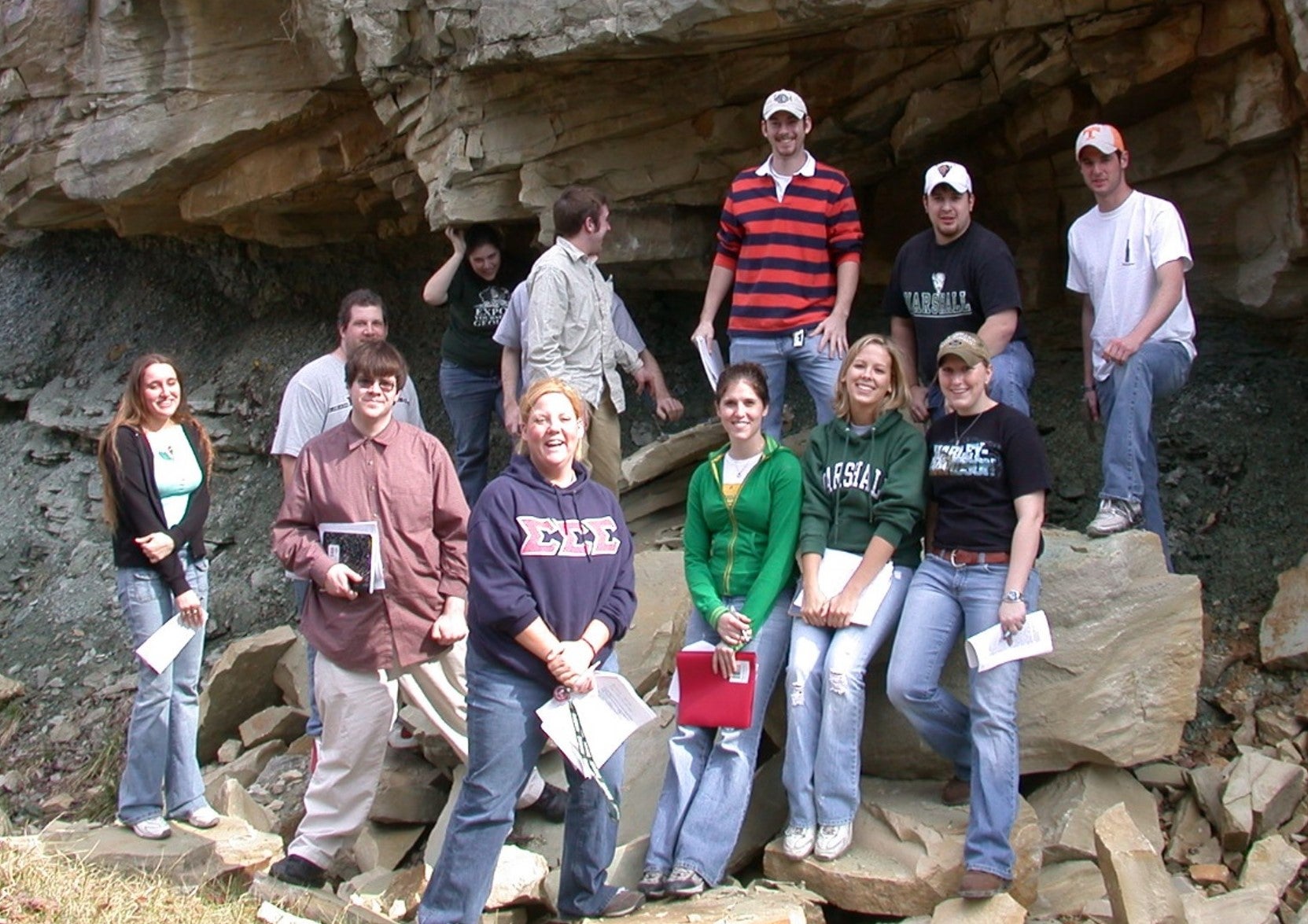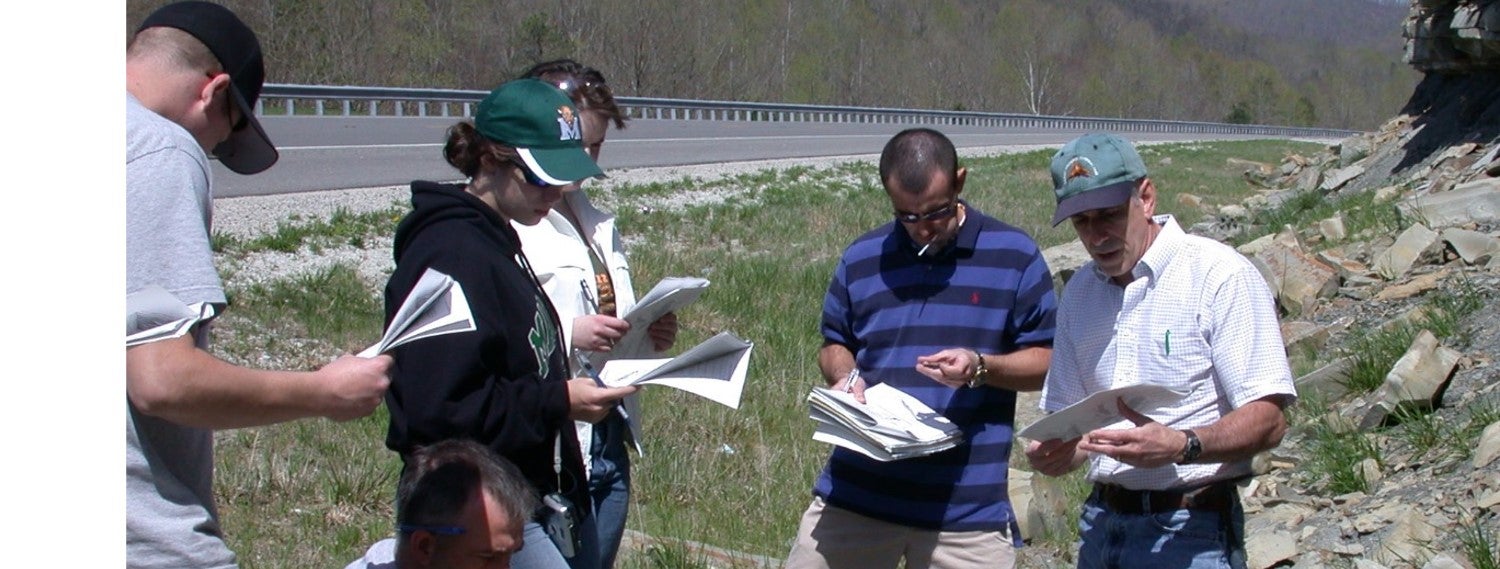Geology offers programs of study designed for individuals seeking a career as an earth scientist. Challenging and rewarding career opportunities occur in three main areas: environmental geoscience, engineering geology, and exploration for natural resources (especially coal, oil, gas).
The majority of graduates have found employment with environmental and geotechnical companies or with energy companies. Other employers include geological surveys, and local, state, and federal regulatory agencies, such as the U.S. Army Corps of Engineers and the WV Department of Environmental Protection. Career opportunities in the teaching profession at the high school and university level may also be available to those with advanced degrees.

Geologists are curious…
- How has the planet changed through time?
- How and why did the dinosaurs go extinct?
- Where can we find water, mineral, and energy resources?
- What controls Earth’s climate?
- Is there a global warming trend?
- How old is that?
- How and where should we dispose of industrial waste?
- Can we predict where and when earthquakes, tsunamis, and volcanic eruptions will occur?
- How has life changed through time?
- Why are there mountain ranges?
- Why are there layers in that cliff?
What do Geologists do?

We investigate earth materials, processes, and products in order to:
- increase understanding of the planet and its history,
- supply things we need,
- protect the environment,
- mitigate natural hazards.






What Can I Do as a Geologist?
- Economic geology – study of earth materials of economic interest, including metals, minerals, building stone, petroleum, coal, and water.
- Environmental geology – study of problems associated with pollution, waste disposal, and urban development.
- Hydrogeology – study of the abundance, distribution, and quality of ground water.
- Engineering geology – study of geological factors regarding the location, design, construction, operation and maintenance of engineering works
- Seismology –study of the origin, geographic distribution, effects, and possible prediction of earthquakes.
- Paleoclimatology & paleoceanography – study of past changes in Earth’s climate and oceans…as key to future.
- Volcanology – study of volcanoes and volcanic phenomena.
- Astrogeology –the study of the geology of the celestial bodies such as the planets and their moons, asteroids, comets, and meteorites.
Geology Degree Programs
Geology offers an undergraduate major leading to a Bachelor of Science in Geology. Students pursuing an undergraduate degree may also choose from two areas of emphasis: Engineering Geology or Environmental Geoscience. In addition we offer an undergraduate Minor in Geology and a graduate degree program leading to a Master of Science in Physical Science with a Geology Concentration.
Complete information for Geology Undergraduate & Graduate Degree programs.